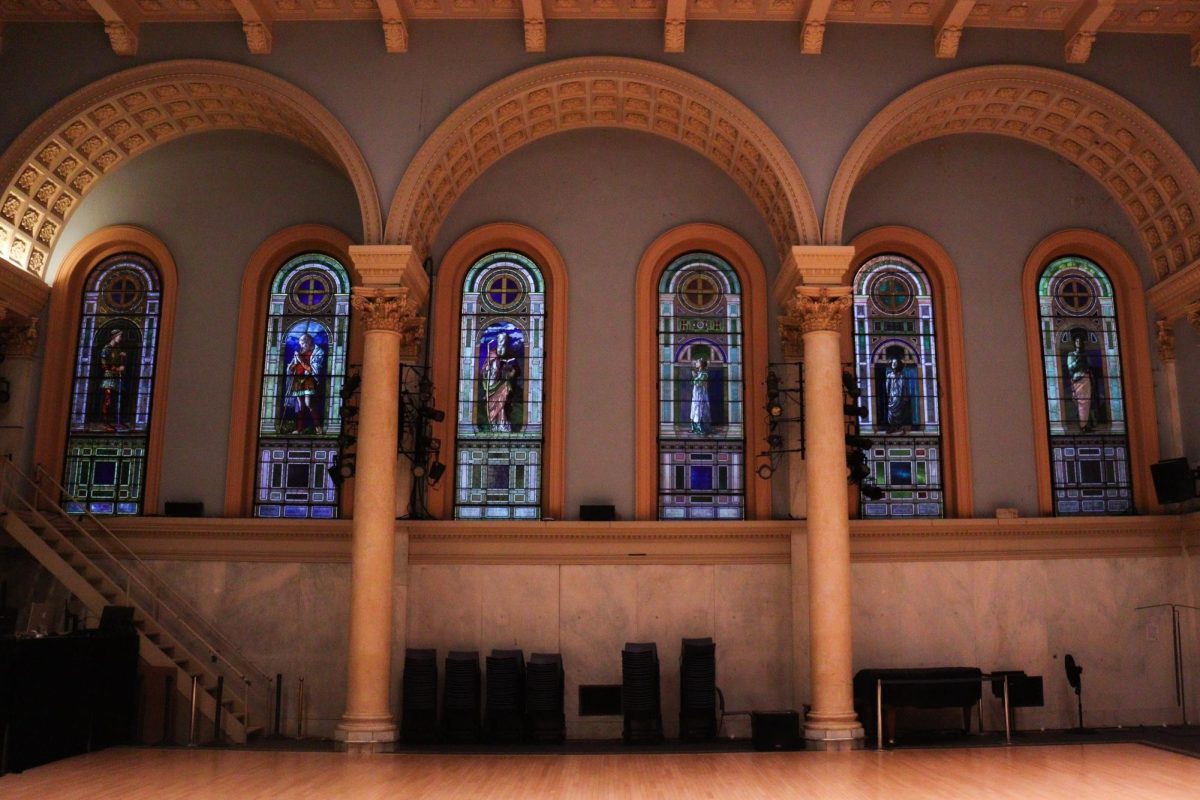55 Washington Square S represents much more than another building students pass on their way to class. Adorned with pride flags and Black Lives Matter banners, Judson Memorial Church has been a gathering place for artists and activists for over a century. Today, it continues to be a hub for social justice advocates and radical art, offering everything from drag operas to interpretive dance.
Located across from NYU’s Global Center for Academic and Spiritual Life, Judson owned its entire block when it first opened in 1893 — but as the university bought up more of its surrounding property, it faded into the background, pastor Elæ Moss Benedetto told WSN. He said that on the other side of its stained glass windows, Judson aims to be home to three things: unfettered creativity, radical social justice and expansive spirituality.
The church is especially well known as a space that fosters unapologetic experimentation in the arts. Hundreds of uniquely artistic events take place each year under Judson’s roof on a nearly nightly basis, often for free or at low cost, including a drag opera that opens on Oct. 30.
“We don’t know how to be a church unless we have artists and organizers and activists coming in,” Reverend Micah Bucey, the church’s senior minister, said in an interview with WSN.
For Bucey, who uses the church’s identity as a haven for queer artists, the protected space is particularly important now that the LGBTQ+ community is facing heightened political scrutiny and violence.
“We think of artists as potentially serving as modern-day prophets,” Bucey said. “We think that what Jesus was doing, what the prophets of the Hebrew Bible were doing — they were justice-minded spiritual performance artists, and that essentially they were using performance art to organize a spiritual, creative, justice-minded revolution.”
Today, Judson partners with groups like Faith in Harm Reduction to offer harm reduction-focused resources for community members struggling with addiction. The church also regularly hosts local activist groups such as the Black Trans Liberation collective, which offers free food and community spaces to trans and gender nonconforming people of color. But prioritizing marginalized communities has long been a cornerstone of Judson.
When the church was first built, founder Edward Judson worked to serve its surrounding community of Italian immigrants living in nearby tenement housing. The Judson Health Center, founded in 1921, was one of the country’s first community health clinics and later offered abortion referrals and care to people facing unwanted pregnancies, years before the procedure was legalized in the United States. Judson was also a founding member of the Clergy Consultation Service, a network of faith leaders supporting people seeking reproductive care.
Over 130 years later, these values remain at the forefront of the church’s mission.
Bucey himself was recently arrested while protesting outside of the U.S. Immigration and Customs Enforcement detention center at 26 Federal Plaza — an act of resistance he said aligned with his role in the church.
“My friend was like, ‘They’re saying that you’re just a paid protester,’” Bucey said. “And I was like, ‘I am a paid protester. It’s called being a minister.’”
According to Benedetto, Judson’s strives to act as what he calls the organ of Washington Square Park.
“It wants to serve the park — it wants to serve people who come here,” Benedetto said. “I do feel like Washington Square Park is like the peaceable kingdom, in a way.”
In that way, Judson serves as a welcoming venue for the nearby park’s artists, activists and creatives while keeping its longstanding commitments as a religious space. Inside its doors, worshippers gather around tables laid with baskets of bread, plates of fruit and cheese and pitchers of grape juice on the first Sunday of every month. They sing a mix of traditional hymns and modern songs, and listen to both the reverend preaching from the pulpit and members of the congregation sharing stories.
At its core, the church and its diverse array of art initiatives, activist work and weekly services embody a radical hope.
“Judson has always understood itself as what they call ‘a church for the world,’” Bucey said. “We are a church for the people who are not in it.”
Contact Sam Donagi at culture@nyunews.com.
This story Drag opera nights, social justice organizing and … Sunday service? appeared first on Washington Square News.
